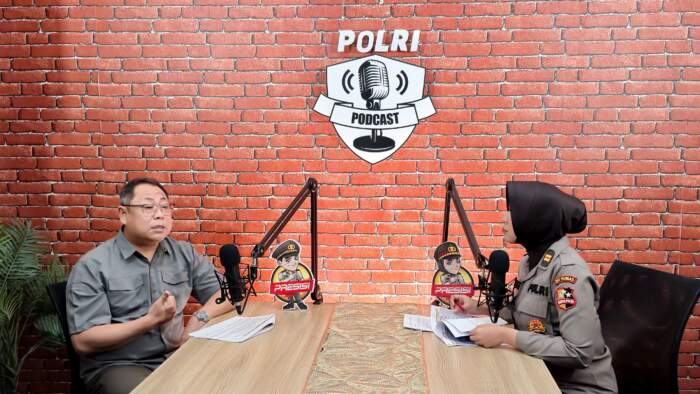Jayapura, Papua — The security situation in Papua continues to grow more complex. In addition to facing armed violence from the West Papua Armed Criminal Group (KKB), the region is also increasingly exposed to organized ideological movements by the West Papua Political Criminal Group (KKP). This dual threat has become a key focus for the Task Force Operation Peace Cartenz 2025.
KKB is widely known for its violent attacks targeting security forces and civilians. Meanwhile, KKP operates in a more covert and systematic manner, utilizing academic spaces, social media platforms, and mass mobilization to promote separatist ideologies.
“While KKB attacks physically, KKP targets ideology and public perception—particularly among Papua’s youth. This presents a long-term challenge, as they carry out recruitment, intellectual agitation, and narrative-building,” stated Brigadier General of Police Dr. Faizal Ramadhani, Head of Peace Operation Cartenz 2025, during a podcast interview with Polri TV on Thursday (July 17, 2025).
Brig. Gen. Faizal pointed out that groups such as the West Papua National Committee (KNPB) and the United Liberation Movement for West Papua (ULMWP) are the main actors pushing separatist agendas, both domestically and through international lobbying efforts. These organizations often leverage the Papuan diaspora and student organizations such as the Papuan Student Alliance (AMP) to expand their influence.
Sensitive issues such as alleged human rights violations, racism, and opposition to government strategic programs are often manipulated to build anti-government sentiment. Many of these programs—including free nutritious meals and the expansion of new autonomous regions—are deliberately misrepresented as acts of neo-colonialism.
“We’ve observed a significant spread of misinformation on social media, portraying government initiatives as forms of new-age colonization. This is clearly misleading and must be countered,” Brig. Gen. Faizal emphasized.
Legal and Cultural Sensitivity as Key Strategy
Currently operating across 11 districts in Papua—particularly in Jayapura, Mimika, Deiyai, Dogiyai, and Yahukimo—the task force employs a law enforcement strategy that is sensitive to the region’s unique socio-cultural context.
According to Brig. Gen. Faizal, rigid enforcement tactics may backfire in Papua, where strong family and customary bonds often influence community dynamics. Many individuals involved with KKB or KKP do so not out of ideological alignment, but out of familial obligation.
“We must distinguish between main perpetrators and sympathizers. Those proven guilty are subject to legal proceedings, but for those involved due to social pressures, anthropological and persuasive approaches are more effective,” he said.
High-Risk Operations and Structural Challenges
Despite its ongoing efforts to stabilize the region, the Task Force Operation Peace Cartenz 2025 faces multiple challenges. It remains one of Indonesia’s highest-risk security operations, with casualties among personnel occurring nearly every year. Additionally, infrastructure limitations, budget constraints, and underdeveloped reward systems for officers continue to pose operational hurdles.
From a legal standpoint, particularly in addressing provocative digital content, existing regulations are still inadequate to swiftly respond to evolving threats online.
“We need cross-sectoral support. Securing Papua cannot rely on military or police alone. Education, economic empowerment, and strengthening traditional institutions must be part of a comprehensive solution,” said Brig. Gen. Faizal.
Commitment to a Peaceful Papua
By prioritizing adaptive law enforcement, cultural dialogue, and institutional collaboration, the Task Force Operation Peace Cartenz 2025 reaffirms its commitment to maintaining peace and security in Papua.
“Papua is not just about security—it’s about the future of its people, its youth, and how the state meaningfully supports them. Peace in Papua is our shared responsibility,” concluded Brig. Gen. Faizal.

